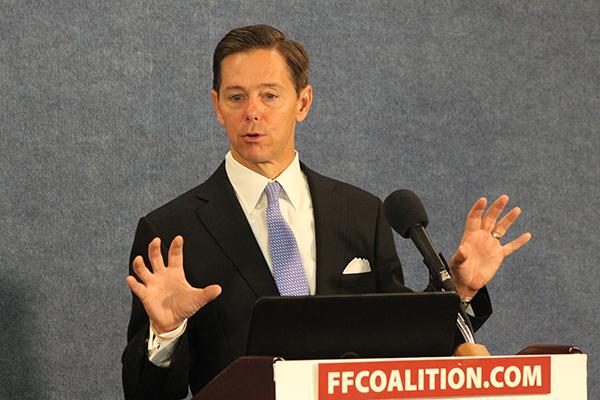Conservative Christians are taking credit for the Republican sweep of the U.S. Senate and GOP victories farther down the ticket in Nov. 4's midterm elections, and they predict they will prevail again in 2016.
“This is not only the largest single constituency in the electorate, but it is larger than the African-American vote, the Hispanic vote, the union vote, and the gay vote combined,” Ralph Reed, one of the most recognized figures in conservative Christian politics, said Nov. 5 in a celebratory post-election press conference.
Reed, who chairs the Faith & Freedom Coalition, which mobilizes conservative Christian voters across the nation, said politicians in both parties ignore this constituency “at their own peril.”
Reed pointed to a poll commissioned by his group that shows that conservative Christians — Protestants and Catholics — made up 32 percent of the Republican electorate, and that they overwhelmingly voted (86 percent) for Republicans Nov. 4. These voters contributed 52 percent of the total votes received by Republicans, according to the Public Opinion Strategies survey, which had a margin of error of plus or minus 3.5 percent.
But some experts pointed out that little has changed in the religious electoral landscape.
Read the Full Article

